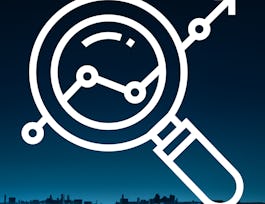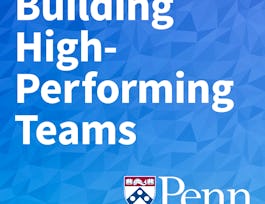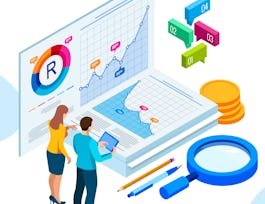This fourth of five courses examines the methodological approaches and research tools that inform our understanding of best practices in working with science teams, communities, and with data. The topics of this course include:



Social Determinants of Health: Methodological Opportunities
Dieser Kurs ist Teil von Spezialisierung Social Determinants of Health: Data to Action


Dozenten: Daniel J. Pesut, Ph.D., RN, FAAN
Bei  enthalten
enthalten
Kompetenzen, die Sie erwerben
- Kategorie: Health Informatics
- Kategorie: Data Analysis
- Kategorie: Health Equity
- Kategorie: Methodology
- Kategorie: Data Visualization
Wichtige Details

Zu Ihrem LinkedIn-Profil hinzufügen
8 Aufgaben
Erfahren Sie, wie Mitarbeiter führender Unternehmen gefragte Kompetenzen erwerben.

Erweitern Sie Ihre Fachkenntnisse
- Lernen Sie neue Konzepte von Branchenexperten
- Gewinnen Sie ein Grundverständnis bestimmter Themen oder Tools
- Erwerben Sie berufsrelevante Kompetenzen durch praktische Projekte
- Erwerben Sie ein Berufszertifikat zur Vorlage


Erwerben Sie ein Karrierezertifikat.
Fügen Sie diese Qualifikation zur Ihrem LinkedIn-Profil oder Ihrem Lebenslauf hinzu.
Teilen Sie es in den sozialen Medien und in Ihrer Leistungsbeurteilung.

In diesem Kurs gibt es 5 Module
The purpose of this module is to examine community-based participatory research (CBPR) and evaluate its potential applications in data-to-action initiatives. Lesson one will define CBPR, as we discuss its origin and relation to collective impact. We will also review the goals, purpose, benefits and characteristics of CBPR as we compare it to traditional research methods. In lesson two, we will explore potential measurement strategies for analyzing CBPR outcomes and data-to-action interventions. We will also consider how CBPR success is measured and how data can be used to amplify community voices.
Das ist alles enthalten
3 Videos4 Lektüren2 Aufgaben1 Diskussionsthema5 Plug-ins
This module will introduce the principles of team science and examine how team science can be used to enhance data-to-action initiatives. In lesson one, we will define team science, as we discuss how it is related to collective impact and CBPR. We will also review recommendations made by the National Academies Committee on the Science of Team Science for improving team science effectiveness. Lesson two will focus on the opportunities and challenges for team science in communities, as we further discuss incorporating community perspectives into team science research. We will also evaluate how to measure team science outcomes, as we consider how team science can add perspective and voice to data.
Das ist alles enthalten
2 Videos4 Lektüren2 Aufgaben1 Diskussionsthema3 Plug-ins
This module will focus on the importance of community partnerships in collecting and analyzing community-level data that can be integrated into data-to-action initiatives. Lesson one will define key terms, and introduce the concept of whole-person health. We will also explore how community data can be used to advocate, influence and create policy to support health equity. In lesson two, we will examine the use of simplified plain language in the context of health literacy, as we discuss how to assess the usability of community-validated plain language terms. Lesson three will introduce the MyStrengths+MyHealth assessment, as we review the implications of collecting community-based social determinant of health data. Finally in lesson four, we will evaluate a community-level data exemplar, as we consider how to translate whole person health and community-level data into community-driven health initiatives.
Das ist alles enthalten
5 Videos8 Lektüren2 Aufgaben1 Diskussionsthema
In this module, we will examine informatics as a potential methodology and resource to inform data-to-action initiatives. Lesson one will define key concepts including informatics, knowledge complexity, and knowledge management. Building on these concepts, we will investigate the levels of knowledge management proposed by Verna Allee. We will also consider the different perspectives on the proposed creation of a new social informatics specialty. Building on our understanding of knowledge management, in lesson two, we will explore knowledge representation structures. We will also analyze the use of publicly available population health records as contextual information to manage knowledge and data for action to reduce health disparities. In addition, we will evaluate knowledge representation structures of evidence-based social determinants of health interventions. Finally, we will explore some informatics applications including the Population Health Record and the WHO Health Equity Assessment Toolkit (HEAT).
Das ist alles enthalten
2 Videos4 Lektüren2 Aufgaben1 Diskussionsthema3 Plug-ins
This module will focus on analyzing, displaying and interpreting social determinants of health data, with a particular focus on comparing health outcomes by groups. Lesson one will provide an overview of ANOVA analysis and line graph visualization. In lesson two, we will learn how to conduct ANOVA analyses and create line graphs in R. Using the NHANES dataset, we will compare the mean Hgb a1c by education level. Using the Omaha System dataset, we will compare the mean change in status by number of problems. Finally, we will discuss how to interpret the results of our analysis as we visualize our findings using line graphs.
Das ist alles enthalten
2 Videos4 Lektüren1 peer review1 Diskussionsthema1 Unbewertetes Labor3 Plug-ins
Dozenten


Empfohlen, wenn Sie sich für Health Informatics interessieren

Universiteit Leiden

Johns Hopkins University

University of Pennsylvania
Warum entscheiden sich Menschen für Coursera für ihre Karriere?





Neue Karrieremöglichkeiten mit Coursera Plus
Unbegrenzter Zugang zu 10,000+ Weltklasse-Kursen, praktischen Projekten und berufsqualifizierenden Zertifikatsprogrammen - alles in Ihrem Abonnement enthalten
Bringen Sie Ihre Karriere mit einem Online-Abschluss voran.
Erwerben Sie einen Abschluss von erstklassigen Universitäten – 100 % online
Schließen Sie sich mehr als 3.400 Unternehmen in aller Welt an, die sich für Coursera for Business entschieden haben.
Schulen Sie Ihre Mitarbeiter*innen, um sich in der digitalen Wirtschaft zu behaupten.
Häufig gestellte Fragen
Access to lectures and assignments depends on your type of enrollment. If you take a course in audit mode, you will be able to see most course materials for free. To access graded assignments and to earn a Certificate, you will need to purchase the Certificate experience, during or after your audit. If you don't see the audit option:
The course may not offer an audit option. You can try a Free Trial instead, or apply for Financial Aid.
The course may offer 'Full Course, No Certificate' instead. This option lets you see all course materials, submit required assessments, and get a final grade. This also means that you will not be able to purchase a Certificate experience.
When you enroll in the course, you get access to all of the courses in the Specialization, and you earn a certificate when you complete the work. Your electronic Certificate will be added to your Accomplishments page - from there, you can print your Certificate or add it to your LinkedIn profile. If you only want to read and view the course content, you can audit the course for free.
If you subscribed, you get a 7-day free trial during which you can cancel at no penalty. After that, we don’t give refunds, but you can cancel your subscription at any time. See our full refund policy.


